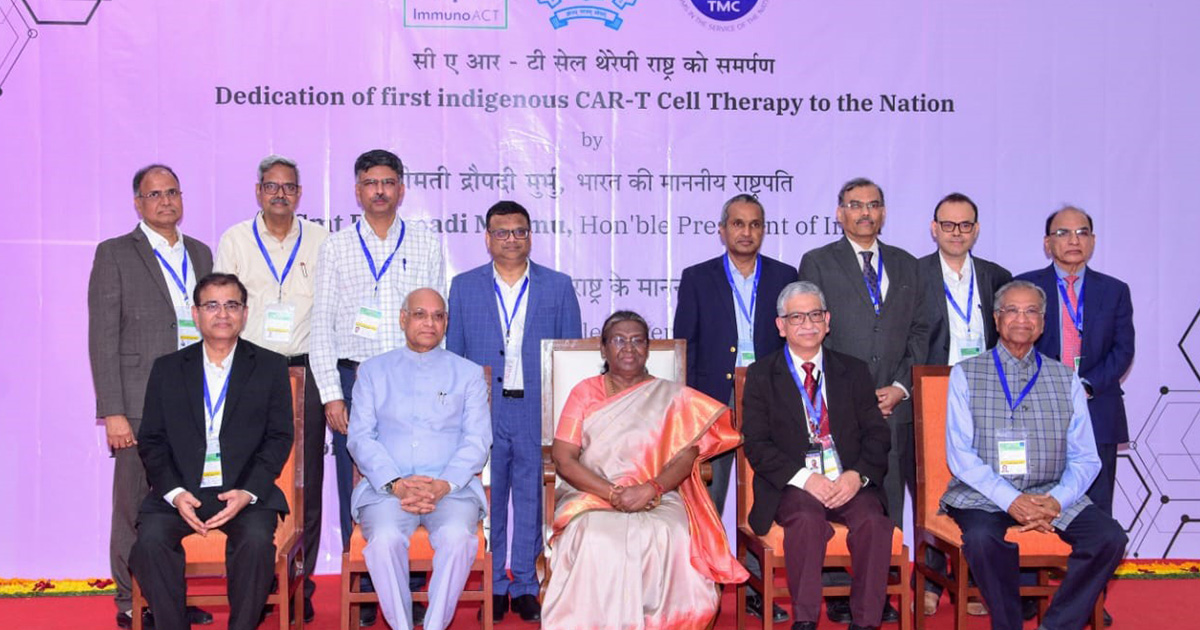IIT Bombay teams up with Tata Memorial Hospital to launch gene therapy for cancer
05 Apr 2024

President of India, Droupadi Murmu, on Thursday launched India’s first home-grown gene therapy for cancer at IIT Bombay.
The technology developed by Indian Institute of Technology, Bombay (IIT-B) jointly with the Tata Memorial Hospital, has already been successfully applied on a 64-year-old man, who also became the first patient to be cured using India's own CAR-T cell therapy.
Dr (Col) VK Gupta, a Delhi-based gastroenterologist, was successfully treated at the Tata Memorial Hospital in Mumbai in 2022. He had earlier undergone a failed bone marrow transplant.
Dr Gupta spent Rs42 lakh on the CAR-T cell treatment, which would have cost him around Rs4 crore outside the country, according to reports.
The indigenous cancer treatment has received approval for commercial use from the Central Drugs Standard Control Organisation (CDSCO).
The Chimeric Antigen Receptor (CAR) T-cell therapy is a complex treatment, helping to cure certain types of cancers by turning the T-lymphocytes (also called T-cells) into more efficient cancer-fighting agents.
The pioneering treatment genetically reprogrammes a person’s immune system to fight cancer. The long-term effect of CAR-T cell treatment, however, is yet to be established.
The President said the launch of India’s first gene therapy is a major breakthrough in the battle against cancer. This line of treatment is accessible and affordable and provides a new hope for cancer patients, she added.
She noted that unlike the gene therapy available in some developed countries, the indigenous CAR-T cell therapy is the world’s most affordable treatment for cancer.
Also, the technology has been developed through collaboration between the Indian Institute of Technology, Bombay and Tata Memorial Hospital in association with industry partner ImmunoACT, an inspiring example of academia-industry partnership, she noted.




















